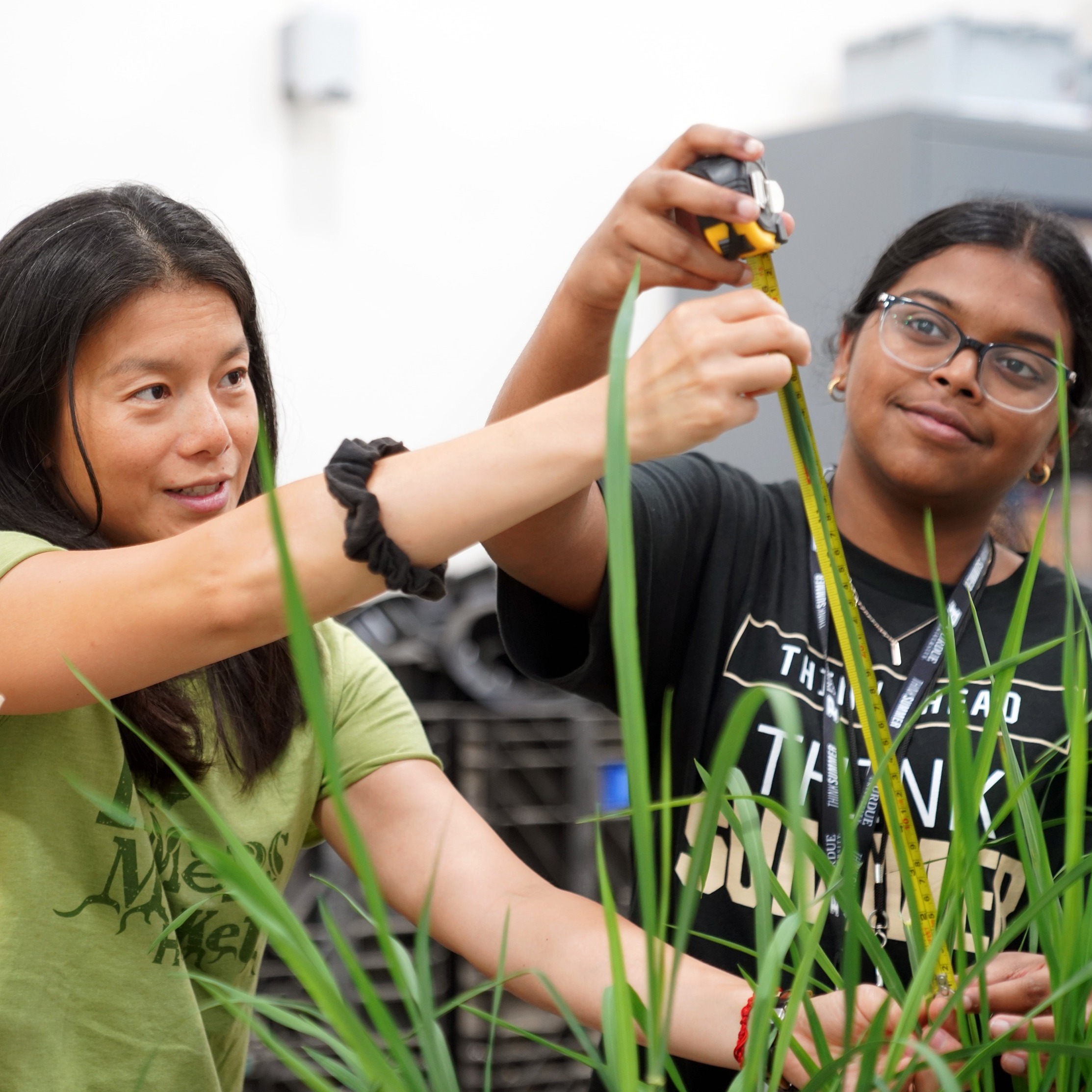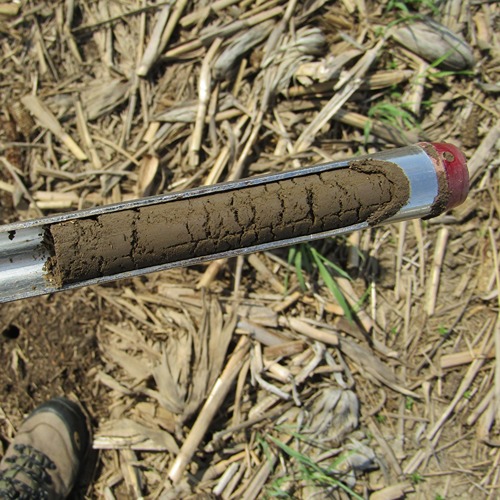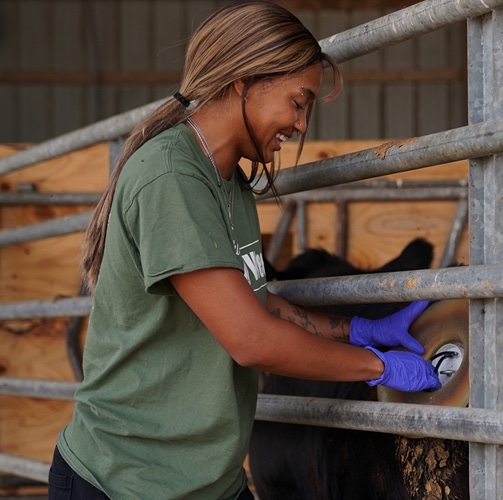Numbers always tell a story
In the case of Indiana’s mental health care and substance abuse history, the statistics reveal a tragic narrative that has been building exponentially. From 2002 to 2017, opioid abuse-prescription and illicit- increased by 500 percent. In that same span of time, over 12,300 Hoosiers died from opioid overdoses. Many of these deaths occurred in rural communities where access to mental health care and rehabilitation facilities is scarce or non-existent. Indiana is in the throes of a mental health care crisis and currently ranks among ten states with the worst access to mental health care for adults and children- an issue that has aggravated substance abuse problems and put a strain on mental health care providers.
Angie Abbott, assistant dean, and associate director of Purdue University’s Health and Human Sciences (HHS) Extension program, remembers when she started hearing concerns from Extension educators about substance abuse in rural communities.
over 15 years (2002-2017) 500% increase in opioid abuse (illicit & prescription)
Indiana ranks 42nd for mental health care
“Reports were starting to trickle up from Extension educators about serious substance abuse issues in communities,” Abbott said. “At a state level we were also starting to hear from the Indiana State Department of Health that they were seeing a crisis of substance abuse across the state. There were requests, from both sides, for Extension to do something.”
While those casually familiar with Purdue Extension might be surprised by these requests they made perfect sense to Extension’s leadership and educators. “We have a network that’s over 100 years old and is incredibly strong in our communities,” Abbott added. “Our Extension staff live work, play and pray in the communities they serve. They know the community leaders, they know the relevant issues and they understand what programs will fit into that community.”
The multitude of these reports and requests spurred Extension’s leadership to look at possible tools and services that might be deployed through county offices to combat substance abuse and address Indiana’s shortage of mental health care providers.
In 2018, Extension launched a series of programs aimed at combatting Indiana’s opioid and substance abuse crisis. Their focus has been to address gaps in mental health care and support throughout the state. Currently, Extension offers a mental health first aid course, a strengthening families program, a webinar series about opioid abuse and a mental health first aid course for those working with youth in the state.
Stephanie Woodcox, assistant program leader for Purdue Extension in HHS, said enhancing awareness and education about mental health is key to tackling substance abuse problems at an individual and state-wide level. This is especially key in rural, agricultural communities, she added, where stigmas attached to mental illnesses remain entrenched.
“The main challenge is awareness,” Jason Henderson, senior associate dean of faculty development and director of Purdue Extension, said. “Most people think about Extension as agriculture and the county fair, yet Extension has worked on health issues for over a century.”
The multitude of these reports and requests spurred Extension’s leadership to look at possible tools and services that might be deployed through county offices to combat substance abuse and address Indiana’s shortage of mental health care providers.
The mental health first aid course, offered through Extension offices throughout the state, is the cornerstone of this strategy. The objective of the course isn’t to provide mental health care, Woodcox said, but to offer education about mental health issues and offer resources for those who struggle or know someone struggling with a mental illness.
“Our role is to be a community facilitator and a preventer,” Henderson continued. “Extension helps facilitate community discussions and connect people to places that can help. Also, we have educational programs that help people learn about strategies to identify and address these issues.”
Woodcox, who is one of 12 facilitators for the mental health first aid course, said she’s witnessed changes in attitude and understanding regarding mental illness over the span of the eight hour course. She’s seen people open up about personal of familial struggles with mental illness and substance abuse, which is already a step in lessening the stigmas that can be attached to discussing or divulging mental health concerns.
“Participants are often surprised by some of the statistics shown in the course about how prevalent things like anxiety or depression are,” Woodcox said. “I see people have these ah-ha moments where they realize how pervasive mental illness and substance abuse problems are and they come out with a completely changed perspective.”
The mental health first aid course is only one facet of Extension’s strategy in this area. “What we’re trying to do, generally, is build resiliency in our communities. We need positive youth development, strong family support systems, ways to shore up familiar relationships and a commitment to encouraging physically and mentally healthy individuals,” Abbott said. “Promoting this looks different in every community.”
And that’s the chief reason Extension is tapping more and more community leaders to combat local substance abuse and mental health issues. A recent component of this strategy involves enabling 4-H volunteers and educators to identify and address mental illness in youth through a youth mental health first aid course.
“We will initially focus our efforts on training our 4-H youth development staff and adult volunteers. We are also working on curriculum materials to teach youth mental resiliency through positive self-talk, emotion recognition and regulation, and life problem-solving skills,” Angela Frost, 4-H youth development healthy living specialist, said.
The idea, Abbott explained, is to enable trusted community members with the tools and expertise to identify red flags, make referrals, or simply engage with residents on sensitive issues. Just as Extension is a trusted resource for many in agricultural communities, 4-H educators are often long-time community members with a vested interest in helping youth and families thrive. For that reason, Frost said, it felt natural to utilize them as another means for education and intervention.
“4-H youth development educators and adult volunteers spend a great deal of time with youth in their clubs and communities,” Frost continued. “They also develop strong bonds that lead to trusting relationships. These relationships can help identify if a young person is having a mental health issue or is simply struggling with common adolescent issues.”
Endowing trusted community members with tools to address pervasive societal issues is not a new concept for Extension, Abbott and Frost explained. Extension and 4-H have confronted problems like obesity and hunger insecurity in a similar fashion. While these past programs provide some guidance, every approach varies and when designing a program to address gaps in mental health care, Abbott continued, there isn’t exactly a model to emulate.
“Purdue has been the leader in the nation when it comes to this compared to other cooperative Extension services,” Abbott said. “We started this conversation and were one of the first in the country to implement services. Now, Extension programs around the country are following suit.”
In 2018, Purdue Extension received a grant to establish a similar program with Extension partners in South Dakota and Michigan. The grant will also help grow Purdue Extension’s role in strengthening communities through education about mental health and substance abuse. Abbott said she knows five years down the road that Extension will support mental health but she doesn’t know what that will look like.
“If you’d asked me five years ago if Extension might serve as a resource for those struggling with substance abuse and mental health I would have said ‘no,’ but look where we are now,” Abbott continued. “And we’re doing such great work.”
She does, however, know, that Extension’s central mission of strengthening the state by empowering and serving communities will remain at the center of efforts in this area.
“We all have stressors in our lives,” Abbott continued. “There is no one that is stress-free. There is nothing wrong with needing support to deal with those stressors. That’s why we’re committed to building individuals, professionals, and communities that can support each other as we all move through life.”





